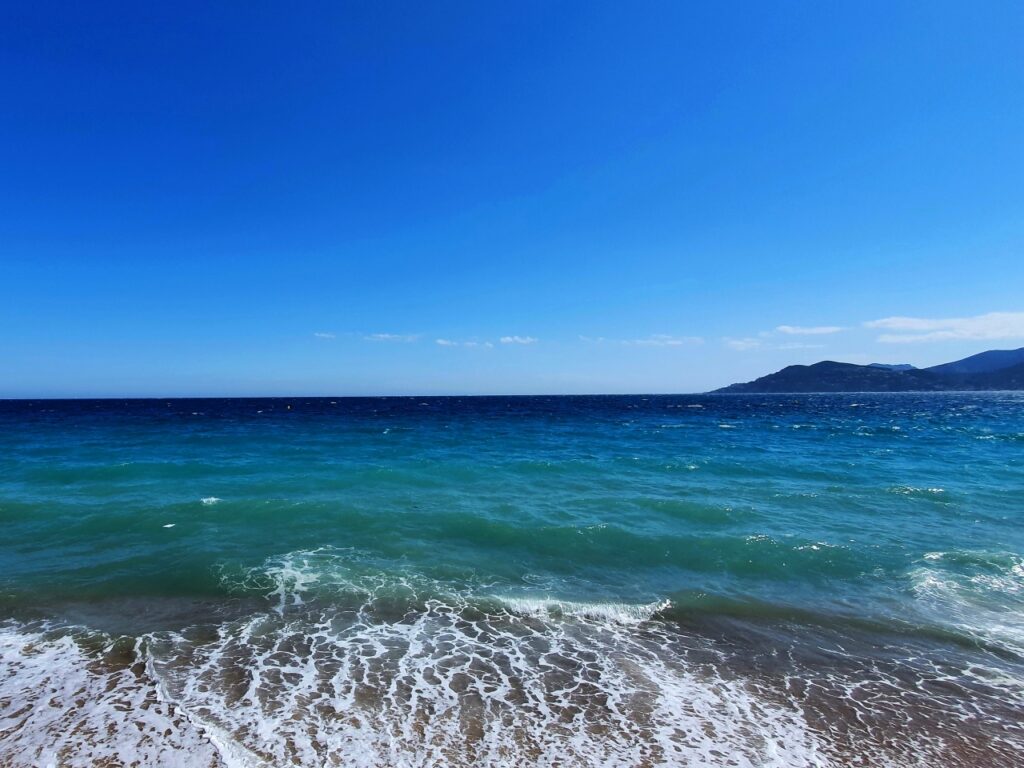There are some periods in one’s life that are highly recognizable as well-known narratives… at a closer look… or if someone is highlighting the underlying story. Those periods could be fragments from larger stories or someone’s entire life can be summarized as one big story. Anyway, it is important to know that there aren’t only archetypal persons but also archetypal situations. Icarus’s story – the one who flew too close to the sun – is an example. The legends of Olympus – the Greek myths – are an important collection of stories, and many complexes in psychology take their name from them… Oedipus for instance. However, there is another collection of stories that survived the passage of time – a proof of its educational and psychological value: the Bible.
I guess you remember the Exodus story: the Jewish escape from the tyranny of the Egyptians ruled by the Pharaoh, after an eventful negotiation also involving some plagues cast upon Egypt, then wander through the desert for a lengthy period of time to their utter despair, fluctuating between faith and lack of it, between God and golden idols, between blessing and curse, between good leadership and good food, and bad leadership, killings and poisonous snakes respectively. This departure from a fake Safe Heaven of dependency leads them to the Promised Land only after “enjoying” the “treasures” and the “pleasures” of the Desert of the Soul. The intermediary between them and a God behaving like a Trickster – I’m talking about Moses – is dying in the end, not being permitted to set foot on the new land – or not being allowed to live in the next phase of the story. It is also important to notice two additional aspects: 1. the laws written on the stone tablets by God himself are not respected so they end up being destroyed and Moses has to rewrite them personally (learned knowledge versus lived experience) and 2. it takes about 40 years of wandering through the desert, the necessary time so that a generation of people born in tyranny can die, therefore those entering the promised land being actually born in the desert (old nasty traditions of addiction to authority versus new habits of living comfortably “in the void”, in the vast emptiness).
It was only when I moved to Cannes here in Southern France that I came to realize how I have unknowingly lived the story of Exodus to Canaan. It was a strange superposition of names – Cannes and Canaan. Plus, Cannes is pronounced phonetically /kan/, quite similar to the verb “can” or “being able to”. Then, over a period of a couple of days, I started to make connections – or bridges – between the biblical story and my reality. And, as with any other archetypal phase, this story has already come to an end for me, Cannes not being at all “the promised land” as shown in the spectacular photos I share on the blog, but rather a very polarized (rich-poor) and crooked (dishonest) place, a “hallucination” I didn’t “buy” from the beginning, probably because I experienced too many setbacks and I was already “vaccinated”.
Now, returning to the exodus story, it is important to notice a couple of parallels between the Bible and the life of a migrant. First, a “true” migrant is the one who leaves his land of origin completely disgusted by the oppression experienced there. It is not a “true” migrant the one who leaves so as to earn money by working or stealing. There are huge groups of Romanians (and other countries, rest assured) who come to the West for work and then send money back in their native country; there is also a considerable group who comes to the West for stealing and trafficking (prostitution, cars, etc.). A “true” migrant is the one who leaves his country because he/she doesn’t agree with the prevalent mentality of abuse (in many, often subtle, forms), authoritarianism (mostly oligarchs) and lack of empathy (mostly cruelty but also subtle forms, such as negligence). If one looks at the life of the Jews in Egypt and the life of, say, Romanians in Romania, one can draw many parallels. Anyway, not all Romanians become migrants because oppression has some advantages. And probably the most important advantages of subjugation are the fact that… 1. you belong to something, some sort of structure, twisted yet still a structure, and… 2. you escape the responsibility to exercise your free will, that is, you can always blame someone for your miserable life. By contrast, if you get into the desert, you can’t afford this luxury: you belong to no one (you are freaking alone) and you hold full responsibility for your choices (not fun, especially when things turn bad or straight hellish). Actually, the “convulsions of faith”, the doubts, the Golden Calf made by the Jews, has some logic; left alone to fend for themselves, people lose faith, so they create self-made structures, some sort of amulets, trying to organize their lives and find certitudes and landmarks (remember: God is a “ghost”, you can’t see him!). It is hard to find yourself when you are alone among foreigners, when you don’t know who you are and what you stand for, when what you thought it is right proves to be wrong because you are subject to a cultural shock. The God’s answer to doubt is almost always annihilation. If you read carefully the Bible, you can see that the non-believers are subject to “un-natural selection”: they are killed in large numbers by… their own compatriots. Why? Because God says so. It is common knowledge among Romanians abroad to avoid other… Romanians. I can also confirm this, as I have left Alsace partly due to my fellow citizens and it was painful as hell. And, so as to highlight the magnitude of my “paranoid persecutory feelings” (as it was “expertly” judged), I closed practically all social media, left the old blog and disabled comments here on this blog. It remains to be established if, by doing so, I didn’t also exclude the others from “my horde”, behaving just like them, as it is always a known trap in psychology the fact that you do exactly what it is done to you but in a different realm. Anyway, after some time the Jews started to come to their senses and wanted to bargain, negotiate, with God: “We promise to be good and You help us.” And God said: “Send more poisonous snakes!” And more Jews got killed.
It is important to stop here a bit. When you are in the desert for a long time, or migrant for 10 years like me, wandering alone without a purpose, you hope you can strike a deal with God. I hereby confirm: you can’t. You get more snakes. You can’t get rid of snakes. Do I have to tell you I broke my “tablets” several times – that is, I didn’t respect what I was educated, what I learned to respect – and I had to re-write everything by myself, several times?! Name a random rule and I will tell you that I broke it. The migrants learn this the hard way but the more educated you are, the more you understand and the more painful it is… There is always a constant desire to return to the “tyranny”, to Egypt; I returned 4 times in Romania, practically destroying my curriculum vitae. Yes, I know how it is to build “golden idols” and pray to them; I did that too, protesting with the Romanian flag in my hand, in the street, for weeks in a row, hoping that “the folk” will wake up and – guess what?! – it didn’t. High expectations, certain disappointment.
After a while you get used to living a pointless life. The desert is becoming stronger, you have no prospects, the old generations who were born in Egypt are dying and new generations are born “while in the desert”. I “also” grew old… I cut all connections with my family in Romania. It sounds cruel. It is. It was unbearable to hear the same “pharaoh-ic” opinions about how life should be lived and about the non-values I should obey. It is important to emphasize one thing: the nowadays Romanian society has been built by the generation of my parents; therefore, if the country is in such a bad shape that I was happy to “escape” (yes, you read it correctly, escape) from it, whose fault is it?! Let it sink for a moment! It took the Jews 40 years to reach Canaan for exactly this reason: the parents who accepted to be slaves for the Egyptians couldn’t enter the Promised Land; they were simply not fit to enter. So they had to die. So yes, you need to age so as to become “something else”. A “French of Romanian origin” in my case, ‘cause I will never be a “pure breed” French just like the Jews weren’t native Canaanites. However, the story needs to be understood at a psychological level; it’s not about nationality, it’s about values; it’s about leaving some of the Eastern values (we can call them Russian values if you will) and embracing some of the Western values, knowing all too well that you can (and will) never be a true Westerner.
The people of Israel are living now in Canaan, as promised. They struggle. Actually, funny enough, the name Is-ra-el can be traced back to ancient Syria, being found in cuneiform languages. It translates by “he who wrestles with God” or “he who prevails with God”. Anyhow, it is a tumultuous relationship with God, it’s a struggle. Psychologically, since the relationship with God and faith is copied from our parents and their own struggle with dependency and autonomy (existentialistic-speaking), we might say that there are “daddy/mommy issues”. It is no surprise that the Exodus archetypal story was full-blown activated in myself for many years and it is no surprise that I couldn’t see it earlier. It says a lot about me personally; it says more than I’d like to share… Leaving Romania, becoming “boundless”, meant also leaving a family behind, a family that cannot understand me, a family I still struggle with… in my mind.
It is not surprising the fact that we can extrapolate from family (parents) to country of origin and then God. These 3 realms are interconnected. The native country is often described as a “mother” and God is masculine for some recent historic time but we should not forget that primitive tribes were ruled by a “mother”, a matriarch, and the goddesses representing fertility were in high regard. Archetypally, these things – mother-country-god – are well connected. And a problem with one may lead to problems with the others. Look again to the Jewish people who struggle with God, with their country (remember Palestine) and perhaps, hard to know for sure, with their parents… or their parental images…
How the Exodus ends? The battle with different tribes continues in Canaan, as it still continues today in the West Bank and the Gaza Strip. The fact that you are in the Promised Land means nothing; you still struggle. IF… you are Israel. IF… your identity is so important for you. IF… the relationship with God still bothers you.
But what IF… not?!



